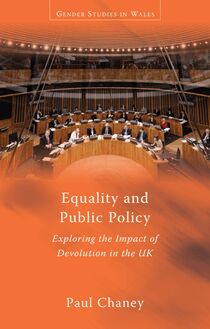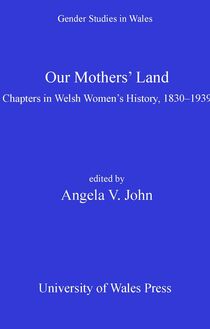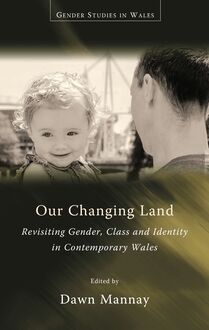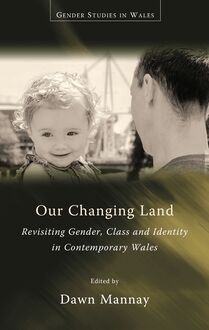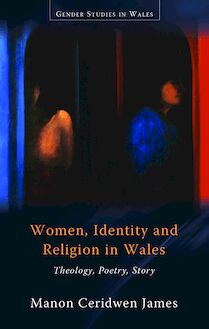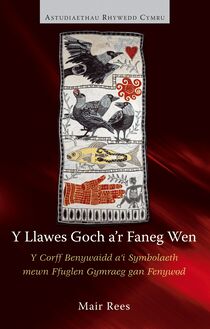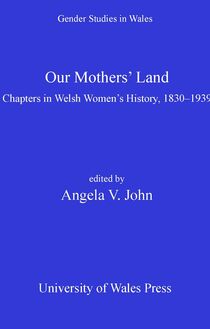-
 Univers
Univers
-
 Ebooks
Ebooks
-
 Livres audio
Livres audio
-
 Presse
Presse
-
 Podcasts
Podcasts
-
 BD
BD
-
 Documents
Documents
-
- Cours
- Révisions
- Ressources pédagogiques
- Sciences de l’éducation
- Manuels scolaires
- Langues
- Travaux de classe
- Annales de BEP
- Etudes supérieures
- Maternelle et primaire
- Fiches de lecture
- Orientation scolaire
- Méthodologie
- Corrigés de devoir
- Annales d’examens et concours
- Annales du bac
- Annales du brevet
- Rapports de stage
La lecture à portée de main
Vous pourrez modifier la taille du texte de cet ouvrage
Découvre YouScribe en t'inscrivant gratuitement
Je m'inscrisDécouvre YouScribe en t'inscrivant gratuitement
Je m'inscrisEn savoir plus
Vous pourrez modifier la taille du texte de cet ouvrage
En savoir plus

Description
2. Ceridwen Lloyd Morgan, The Archivist's Tale: primary sources for the study of Margiad Evans
3. Diana Wallace, 'Two nations at war within it': marriage as metaphor in Margiad Evans's Country Dance
4. Lucy Thomas, ‘Born to a million dismemberments’: female hybridity in the border writing of Margiad Evans, Hilda Vaughan and Mary Webb
5. Katie Gramich, Gothic Borderlands: the hauntology of place in the fiction of Margiad Evans
6. Tony Brown, Time, Memory and Identity in the Short Stories of Margiad Evans
7. M. Wynn Thomas, Margiad Evans and Eudora Welty: a confluence of imaginations
8. Kirsti Bohata, The Apparitional Lover: homoerotic and lesbian imagery in the writing of Margiad Evans’
9. Andrew Larner, A ‘Herstory’ of Epilepsy in a Creative Writer: the case of Margiad Evans
10. Karen Caesar, Warding off the Real: The recreation of self in Autobiography and A Ray of Darkness
11. Clare Morgan, 'The Human Tune': Margiad Evans and the frustrating fifties
12. Sue Asbee, ‘Not quite every character is a living person in this story. And not quite the reverse.’ Margiad Evans: Memory, fiction and autobiography
13. Moira Dearnley, ‘Eternity is now my mood’: a view of the later writings of Margiad Evans
Sujets
Informations
| Publié par | University of Wales Press |
| Date de parution | 15 février 2013 |
| Nombre de lectures | 0 |
| EAN13 | 9780708326893 |
| Langue | English |
Informations légales : prix de location à la page 0,0650€. Cette information est donnée uniquement à titre indicatif conformément à la législation en vigueur.
Extrait
REDISCOVERING MARGIAD EVANS
Gender Studies in Wales Astudiaethau Rhywedd yng Nghymru
Series Editors Jane Aaron, University of Glamorgan Brec’hed Piette, Bangor University Sian Rhiannon Williams, Cardiff Metropolitan University
Series Advisory Board Deirdre Beddoe, Emeritus Professor Mihangel Morgan, Aberystwyth University Teresa Rees, Cardiff University
The aim of this series is to fill a current gap in knowledge. As a number of historians, sociologists and literary critics have for some time been pointing out, there is a dearth of published research on the characteristics and effects of gender difference in Wales, both as it affected lives in the past and as it continues to shape present-day experience. Socially constructed concepts of masculine and feminine difference influence every aspect of individuals’ lives; experiences in employment, in education, in culture and politics, as well as in personal relationships, are all shaped by them. Ethnic identities are also gendered; a country’s history affects its concepts of gender difference so that what is seen as appropriately ‘masculine’ or ‘feminine’ varies within different cultures. What is needed in the Welsh context is more detailed research on the ways in which gender difference has operated and continues to operate within Welsh societies. Accordingly, this interdisciplinary and bilingual series of volumes on Gender Studies in Wales, authored by academics who are leaders in their particular fields of study, is designed to explore the diverse aspects of male and female identities in Wales, past and present. The series is bilingual, in the sense that some of its intended volumes will be in Welsh and some in English.
REDISCOVERING MARGIAD EVANS
______________________________
Marginality, Gender and Illness
Edited by
Kirsti Bohata and Katie Gramich
UNIVERSITY OF WALES PRESS
CARDIFF 2013 -->
© The Contributors, 2013
All rights reserved. No part of this book may be reproduced in any material form (including photocopying or storing it in any medium by electronic means and whether or not transiently or incidentally to some other use of this publication) without the written permission of the copyright owner except in accordance with the provisions of the Copyright, Designs and Patents Act 1988. Applications for the copyright owner’s written permission to reproduce any part of this publication should be addressed to the University of Wales Press, 10 Columbus Walk, Brigantine Place, Cardiff CF10 4UP.
www.uwp.co.uk
British Library Cataloguing-in-Publication Data A catalogue record for this book is available from the British Library.
ISBN 978-0-7083-2560-5 e-ISBN 978-0-7083-2689-3
The rights of the Contributors to be identified as authors of this work have been asserted in accordance with sections 77, 78 and 79 of the Copyright, Designs and Patents Act 1988.
The publisher acknowledges the financial support of the Welsh Books Council.
Typeset by Mark Heslington Ltd, Scarborough, North Yorkshire Printed by CPI Antony Rowe, Chippenham, Wiltshire
Contents
Acknowledgements
Notes on Contributors
1 Introduction Kirsti Bohata and Katie Gramich
2 The Archivist’s Tale: Primary Sources for the Study of Margiad Evans Ceridwen Lloyd-Morgan
3 ‘Two Nations at War Within it’: Marriage as Metaphor in Margiad Evans’s Country Dance (1932) Diana Wallace
4 ‘Born to a Million Dismemberments’: Female Hybridity in the Border Writing of Margiad Evans, Hilda Vaughan and Mary Webb Lucy Thomas
5 Gothic Borderlands: The Hauntology of Place in the Fiction of Margiad Evans Katie Gramich
6 Time, Memory and Identity in the Short Stories of Margiad Evans Tony Brown
7 Margiad Evans and Eudora Welty: A Confluence of Imaginations M. Wynn Thomas
8 The Apparitional Lover: Homoerotic and Lesbian Imagery in the Writing of Margiad Evans Kirsti Bohata
9 A ‘Herstory’ of Epilepsy in a Creative Writer: The Case of Margiad Evans A. J. Larner
10 Warding off the Real: The Recreation of Self in Autobiography and A Ray of Darkness Karen Caesar
11 ‘The Human Tune’: Margiad Evans and the Frustrating Fifties Clare Morgan
12 Margiad Evans: Memory, Fiction and Autobiography Sue Asbee
13 ‘Eternity is Now my Mood’: A View of the Later Writings of Margiad Evans Moira Dearnley
Bibliography
Acknowledgements
The editors are immensely grateful to Cassandra Davis for permission to quote from the unpublished works and private writing of Margiad Evans. We are indebted to Ceridwen Lloyd-Morgan for her involvement in setting up the Margiad Evans Centenary Conference, which formed the impetus for this book and, most importantly, for her willingness to act as unofficial adviser and consultant on countless matters of fact related to Margiad Evans’s life, work and archives. Our task as editors has been considerably lightened by her invaluable support. Warm thanks also to Jim Pratt, the nephew of Margiad Evans, whose energy and infectious enthusiasm was an important driving force during Kirsti Bohata’s organisation of the conference in 2009. Thanks also to the staff of the National Library of Wales for their support for this event, in practical terms and in kind, including the creation of a small exhibition of some of the Margiad Evans manuscripts from their collections. The editors would like to thank the editorial and production staff at the University of Wales Press and gratefully acknow ledge publishing subventions from the University of Cardiff and the Welsh Books Council.
Contributors
SUE ASBEE is a Senior Lecturer at the Open University. She has written a number of articles on Margiad Evans’s work, including the introduction to the Honno edition of The Wooden Doctor (2005). ‘Margiad Evans’s The Wooden Doctor : Illness and Sexuality’ appeared in Welsh Writing in English (UWP, 2004), and her conference paper ‘“To Write a Great Story”: Margiad Evans’s illness narratives’ was published in 2009.
KIRSTI BOHATA is Senior Lecturer in English Literature and Director of the Centre for Research into the English Literature and Language of Wales (CREW) at Swansea University. She is the author of Postcolonialism Revisited: Writing Wales in English (UWP, 2004) and editor of Bertha Thomas, Stranger Within the Gates (Honno Classics, 2008). She has published widely on Welsh women’s writing, most recently ‘“Unhomely moments”: reading and writing nation in Welsh female Gothic’, in The Female Gothic , Andrew Smith and Diana Wallace (eds) (Palgrave, 2009).
TONY BROWN is Professor of English at Bangor University, where he is also Co-director of the R. S. Thomas Study Centre. He was the founding editor of Welsh Writing in English: A Yearbook of Critical Essays (1995–2007) and has published widely on Welsh writing in English, especially on Glyn Jones (including editions of Glyn Jones’s Collected Stories and The Dragon has Two Tongues ) and on R. S. Thomas; his R. S. Thomas in UWP’s Writers of Wales series appeared in 2006 (repr. 2009). He is currently working on a monograph on the English-language short story in Wales.
KAREN CAESAR is completing a PhD on ‘Margiad Evans: body and book’. Her conference paper ‘Patient, doctor and disease in Margiad Evans’s The Wooden Doctor ’ was published in 2009.
MOIRA DEARNLEY was born and educated in Swansea. After completing her PhD and holding a University of Wales fellowship, she worked in educational research before becoming a teacher. She has published The Poetry of Christopher Smart (Routledge, 1968), Margiad Evans (UWP, 1982) and Distant Fields: Eighteenth-Century Fictions of Wales (UWP, 2001). Now retired, she is completing a literary biography of Mary Robinson.
KATIE GRAMICH is Professor of English Literature at Cardiff University. She is the author of Twentieth-Century Women’s Writing in Wales: Land, Gender, Belonging (UWP, 2007) and Kate Roberts (Writers of Wales series, UWP, 2011) and the editor of Mapping the Territory : Critical Approaches to Welsh Fiction in English (Parthian, 2010).
A. J. LARNER is a consultant neurologist at the Walton Centre for Neurology and Neurosurgery, Liverpool and Society of Apothecaries’ Honorary Lecturer in the History of Medicine, University of Liverpool. He has an interest in neurological disorders in famous artists, and in literary portrayals of neurological illness. He currently edits Medical Historian: The Bulletin of the Liverpool Medical History Society .
CERIDWEN LLOYD-MORGAN was formerly Head of Manuscripts and Visual Images at the National Library of Wales, where she catalogued the Margiad Evans manuscripts and archives. She is the author of a critical biography of Margiad Evans (Seren, 1998), as well as books and articles on the art and literatures of Wales.
CLARE MORGAN is Director of the graduate creative writing programme at the University of Oxford. Her novel A Book for All and None was published by Weidenfeld Nicolson in June 2011, and her book What Poetry Brings to Business was published by the University of Michigan Press in May 2010. She has published a short story collection, An Affair of the Heart (Seren, 1996), and her stories have been commissioned by BBC Radio 4 and widely anthologised. She reviews regularly for the Times Literary Supplement and is a Fellow of Kellogg College, Oxford University, and a Fellow of the Royal Society of Arts.
LUCY THOMAS completed a PhD at Cardiff University in 2009, en titled ‘The novels of Hilda Vaughan 1892–1985: negotiating the boundaries of Welsh identity’. She has published and given papers on Welsh women’s writing in English and continues to work on the Vaughan archive. She is currently working at the Welsh Books Council.
M. WYNN THOMAS is Professor of English and Emyr Humphreys Professor of Welsh Writing in English at CREW (Centre for Research into the English Literature and Language of Wales), Swansea University. A Fellow of the British Academy and Vice-President of the Learned Society of Wales, he
-
 Univers
Univers
-
 Ebooks
Ebooks
-
 Livres audio
Livres audio
-
 Presse
Presse
-
 Podcasts
Podcasts
-
 BD
BD
-
 Documents
Documents
-
Jeunesse
-
Littérature
-
Ressources professionnelles
-
Santé et bien-être
-
Savoirs
-
Education
-
Loisirs et hobbies
-
Art, musique et cinéma
-
Actualité et débat de société
-
Jeunesse
-
Littérature
-
Ressources professionnelles
-
Santé et bien-être
-
Savoirs
-
Education
-
Loisirs et hobbies
-
Art, musique et cinéma
-
Actualité et débat de société
-
Actualités
-
Lifestyle
-
Presse jeunesse
-
Presse professionnelle
-
Pratique
-
Presse sportive
-
Presse internationale
-
Culture & Médias
-
Action et Aventures
-
Science-fiction et Fantasy
-
Société
-
Jeunesse
-
Littérature
-
Ressources professionnelles
-
Santé et bien-être
-
Savoirs
-
Education
-
Loisirs et hobbies
-
Art, musique et cinéma
-
Actualité et débat de société
- Cours
- Révisions
- Ressources pédagogiques
- Sciences de l’éducation
- Manuels scolaires
- Langues
- Travaux de classe
- Annales de BEP
- Etudes supérieures
- Maternelle et primaire
- Fiches de lecture
- Orientation scolaire
- Méthodologie
- Corrigés de devoir
- Annales d’examens et concours
- Annales du bac
- Annales du brevet
- Rapports de stage
